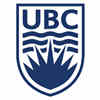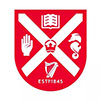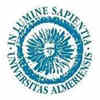美国霍华德休斯医学研究院招收博士后
美国霍华德休斯医学研究院招收博士后
Howard Hughes Medical Institute
We are hiring postdoctoral associates to investigate how populations of neurons perform complex computations, such as object segmentation and object recognition. We work closely with experimentalists who record thousands of neurons simultaneously and develop machine-learning tools to extract computational principles from these large-scale data sets. Examples of ongoing projects include creating a neural atlas of behavioral representations across mice and brain areas, creating data-inspired methods for structure discovery in large-scale recordings, determining the goals of various visual areas by comparing neural activity to deep neural networks trained on various visual tasks, and fitting biologically-plausible, deep-network models to visual cortical neural activity. For more information on the Stringer lab, visit https://www.janelia.org/lab/stringer-lab
Desired skills and abilities:
· Experience working with large-scale datasets and machine-learning pipelines
· Ability to develop creative ideas for applying machine-learning algorithms to neuroscience research
· PhD in computational neuroscience, machine learning, applied mathematics, or a related field
If you are interested please send your CV and a statement of research interests to stringerc@janelia.hhmi.org
2. 美国哈佛医学院招收计算机神经科学博士后
Postdoctoral Position in Computational Neuroscience
Clemens Scherzer, MD
Boston, MA
Harvard Medical School and Brigham & Women’s Hospital
Postdoctoral Position in Computational Neuroscience
Do you want to use your computational skills to solve brain disease? We are looking for an exceptional candidate for a Postdoctoral Position in Computational Neuroscience in the Neurogenomics Laboratory (www.scherzerlaboratory.org) and Center for Advanced Parkinson Research (www.bwhparkinsoncenter.org), both led by Clemens Scherzer, MD, at Harvard Medical School and Brigham & Women’s Hospital. We are decoding causes and developing new therapies for neurodegenerative diseases such as Parkinson’s and Alzheimer’s disease using large-scale single-cell RNA sequencing of human brain cells, whole genome, transcriptome, metabolome analyses of large patient cohorts, combined with Electronic Health Records, systems biology, and machine learning.
Our laboratory is unique as it combines a strong computational neuroscience group (including computer scientists, engineers, and a statistician) with bench scientists and a clinical research group. This interdisciplinary expertise allows new, surprising discoveries and development of new methods using computational and systems biology, that then are experimentally tested using molecular biology and evaluated in real-world patients using our biobank samples and longitudinal cohorts. We are particularly interested in using single cell RNA sequencing and sequencing of noncoding RNAs to understand how GWAS variants cause specific brain cells to die (Dong et al., Nature Neuroscience, 2018). We are working on prediction and prevention of disease progression in patients (e.g. Liu et al., Lancet Neurology, 2017) and on repurposing of drugs for Parkinson’s patients (e.g. Mittal et al., Science, 2018) using genome sequencing, multi-modal, multi-scale omics, big health data, and machine learning.
Your qualifications. We want you to have (1) one prior original article as first author; (2) a Ph. D. or equivalent doctoral degree (preferably in bioinformatics, computer science, or statistical genetics); (3) research experience in bioinformatics and analyses of genome-wide data (for example, single cell RNA sequencing, whole genome sequencing, GWAS, eQTL, AI methods, RNA-sequencing); (4) strong quantitative skills preferably in computer science, bioinformatics, or statistics are necessary; (5) programming background is necessary (e.g. R); (6) excellent written and spoken English. Candidates dedicated to succeeding in an academic research career are preferred and such career paths are available.
Apply. Please submit (1) your biosketch, (2) a cover letter outlining your research interests and goals, and (3) contact information for three references to Dr. Clemens Scherzer at cscherzer@rics.bwh.harvard.edu and cc to Marilyn Sullivan at msullivan70@bwh.harvard.edu.
Learn more about our research: www.scherzerlaboratory.org and www.bwhparkinsoncenter.org.

















